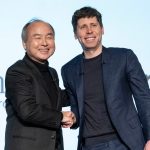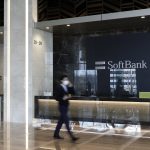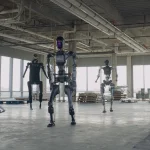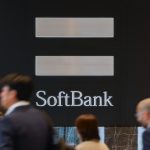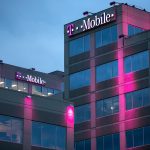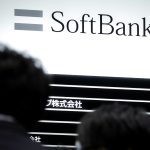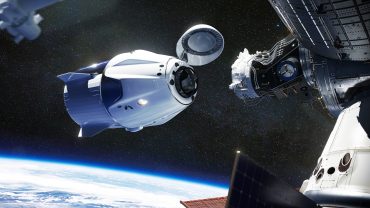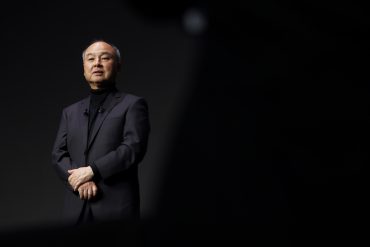
- AI Infrastructure
- Physical AI
- Robotics
SoftBank Acquires ABB Robotics in $5.4B “Physical AI” Deal
6 minute read

The $5.4 billion deal cements SoftBank’s ambition to merge artificial intelligence with industrial automation, marking a new era for “Physical AI”.
Key Takeaways
- ABB secures approximately $5.4 billion in net proceeds, enabling accelerated capital returns and strategic investments while eliminating the execution risks of a complex spin-off.
- The transaction values the robotics division at sector-appropriate multiples (2.3x revenue, 17.2x EBITDA), reflecting premium pricing driven by AI integration potential in industrial automation.
- SoftBank gains a platform with 7,000 employees across 100 countries, combining ABB’s industrial hardware expertise with its existing AI investments to target the emerging “Physical AI” market.
Introduction
In a transaction that epitomises the collision between Silicon Valley ambition and Swiss industrial precision, SoftBank Group has agreed to acquire ABB’s robotics division for $5.375 billion in cash, pivoting the Swiss engineering giant away from a planned spin-off and toward immediate liquidity. The deal, announced on 8 October 2025, represents far more than a simple change of ownership—it is a calculated wager on the convergence of artificial intelligence and physical automation, a frontier that Masayoshi Son has dubbed “Physical AI.” For ABB, the sale marks a strategic retreat from a business that, while profitable, increasingly felt like an outlier within its electrification and process automation empire.
The robotics unit generated $2.3 billion in revenue last year—a respectable figure, but merely 7% of the group’s total—with an operational EBITA margin of 12.1%. Subject to regulatory approvals, the sale is expected to close in mid-to-late 2026, amid scrutiny from authorities in the European Union, China, and the United States.
Key Developments
ABB’s board first signalled a shift in April 2025, announcing plans to propose a 100% spin-off of the robotics division at the 2026 annual general meeting to unlock value in a unit with distinct market dynamics. In September 2025, SoftBank’s board approved pursuit of the acquisition, delegating final terms to Chairman and CEO Masayoshi Son. On 8 October 2025, the companies signed a definitive agreement, with ABB carving out the robotics business into a new Zürich-based holding company; from Q4 2025, the unit will be reported as discontinued operations.
ABB disclosed an expected pre-tax book gain of $2.4 billion and separation costs of $200 million, half already in its FY2025 guidance, with proceeds earmarked for organic growth, acquisitions, and shareholder returns. SoftBank emphasised integration with its robotics holdings, including SoftBank Robotics Group and Berkshire Grey, to advance AI capabilities. The transaction was filed with the SIX Swiss Exchange that day, with customary antitrust reviews anticipated but no immediate filings noted. Closing is targeted for mid-to-late 2026, pending approvals and adjustments for net debt and working capital.
Market Impact
ABB shares on the SIX Swiss Exchange rose 3% in pre-market trading on 8 October 2025, reflecting investor approval of the value-unlocking divestment. SoftBank’s stock on the Tokyo Stock Exchange climbed 1% in afternoon trading but closed 1.57% lower than the prior day’s close, amid broader market volatility. Robotics peers showed muted responses: Fanuc shares edged up 0.16% in Tokyo, while Yaskawa registered a similar gain of 0.16%; KUKA, under China’s Midea, exhibited no material movement. Broader industrial automation ETFs, including the ROBO Global Robotics & Automation Index, advanced 0.5% intraday, supported by AI sentiment. No immediate changes to credit ratings or outlooks were reported, though the proceeds are projected to improve ABB’s leverage. Currency fluctuations remained negligible, with the Swiss franc steady against the yen and dollar.
The varied market reactions highlight contrasting investor narratives: ABB benefits from the certainty of cash inflows and a streamlined portfolio, bolstering its appeal in a sector favouring electrification plays amid energy transition demands. For SoftBank, the dip signals caution over execution in a landscape where AI hype has inflated valuations, yet the deal’s alignment with “Physical AI” could catalyse longer-term upside if synergies materialise ahead of peers.
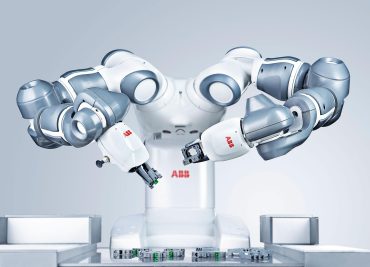
Strategic Insights
The deal highlights the industrial logic of divesting robotics, as its AI-driven cycles diverge from ABB’s core electrification focus, allowing sharper allocation toward high-margin segments. SoftBank’s acquisition fuses ABB’s hardware with its AI portfolio—encompassing Skild AI and Berkshire Grey—to pioneer “Physical AI” in manufacturing and logistics, where adaptive systems could optimise real-time operations. Carve-out execution poses risks, including $200 million in costs and potential disruptions in reallocating the Machine Automation segment, compounded by talent retention challenges amid cultural shifts from ABB’s engineering stability to SoftBank’s venture ethos. Yet, the integration could mitigate these through shared AI goals, enhancing efficiency in supply chains. Competitively, it bolsters SoftBank against Fanuc and Yaskawa in Asia-Pacific, leveraging ABB’s 100-country footprint for rapid scale in established channels.
Beyond these immediate dynamics, the transaction positions both firms within a broader reconfiguration of the automation value chain. ABB’s exit from robotics reinforces its pivot to electrification, where it holds leading positions in grid technologies and EV infrastructure, segments projected to grow at double-digit rates through the decade. For SoftBank, the move extends its pattern of assembling AI adjacencies, from semiconductors via Arm Holdings to now embodied intelligence, potentially creating a closed-loop ecosystem that spans design, deployment, and data feedback loops in industrial settings.
Expert Opinions and Data
“SoftBank’s next frontier is Physical AI. Together with ABB Robotics, we will unite world-class technology and talent,” stated Masayoshi Son, Chairman and CEO of SoftBank Group. “SoftBank’s offer has been carefully evaluated… It reflects the long-term strengths of the division, and the divestment will create immediate value to ABB shareholders,” said Peter Voser, Chairman of ABB.
Revenue of $2.3 billion for the robotics division in FY2024 represents 7% of ABB Group total (ABB press release, 8 October 2025). Operational EBITA margin of 12.1% for the unit in FY2024 (ABB press release, 8 October 2025). EBITDA of $313 million for the division in FY2024 (pro forma, unaudited, US GAAP; SoftBank press release, 8 October 2025). Global robotics market total addressable market of $50.8 billion in 2025 (Statista, 2025 forecast). 542,000 industrial robots installed worldwide in 2024 (International Federation of Robotics, September 2025).
Conclusion
As the transaction navigates regulatory reviews in the EU, China, and US, any delays could push beyond the mid-2026 target, testing stakeholder patience. Post-closing, integration milestones—such as talent retention and initial “Physical AI” prototypes—will gauge execution prowess. ABB’s proceeds deployment into buybacks and bolt-ons may underpin its 2026 outlook, while SoftBank’s synergies could accelerate warehouse automation gains, affirming the bet on AI-physical fusion.
Looking ahead, the deal’s success will hinge on tangible outcomes in revenue synergies and market share gains, particularly as geopolitical tensions influence supply chains in Asia and Europe. Stakeholders should track quarterly updates on carve-out progress and AI pilot deployments, which could validate or challenge the strategic thesis amid evolving trade policies and technological benchmarks.
